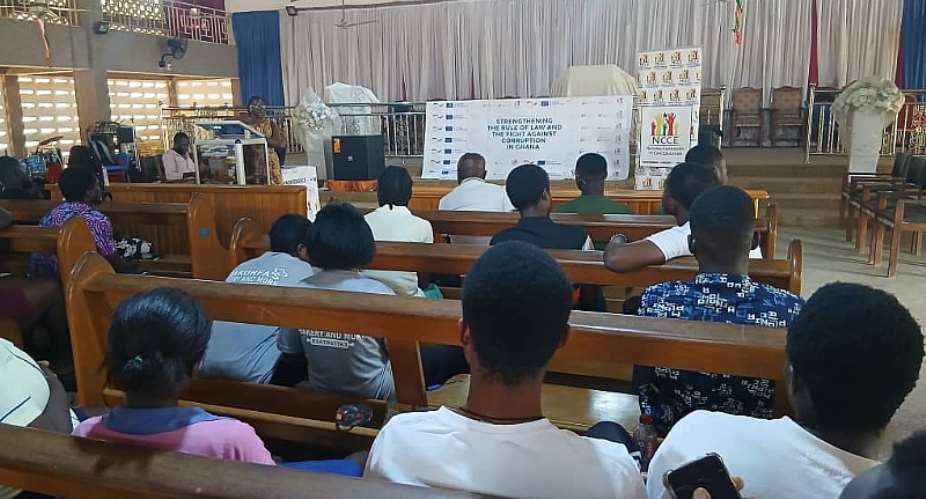Speaking at a town hall meeting co-sponsored by GIZ and the European Union, the District Director, Mr. Simon Kwaku Mawuko, explained that the programme is designed to empower citizens to identify, resist, and report corruption. The initiative, which began with out-of-school youth such as seamstresses, carpenters, and masons, is now being extended to wider community groups.
Mr. Mawuko underscored that corruption remains a destructive force against Ghana’s development and urged citizens to take an active role in monitoring government projects within their communities. He further reminded participants that the Whistleblower Act provides protection for individuals who report corrupt practices.
The programme brought together representatives from the police and the Commission on Human Rights and Administrative Justice (CHRAJ). Madam Josephine Avedzi, the District CHRAJ Director, educated participants on CHRAJ’s role in tackling corruption and human rights abuses. She also stressed the importance of youth involvement in governance and accountability.
Despite the progress, Mr. Mawuko admitted that youth apathy poses a significant challenge, as many between the ages of 18 and 35 often shy away from civic forums. While the NCCE has expanded its civic education efforts onto social media platforms such as Facebook, Twitter, and Instagram, he noted that young people tend to gravitate more towards entertainment content than educational material.
Nonetheless, he assured that the NCCE will not relent but will intensify face-to-face engagements in communities, churches, schools, and public gatherings to sustain the anti-corruption fight.
Madam Avedzi added that any cases of corruption or abuse can be reported to CHRAJ, DOVVSU, the NCCE, or the police, assuring participants that “the identity of the complainant shall be protected.”
Source: modernghana

_
Follow us on our social media pages for more stories and posts from the NCCE.
https://www.instagram.com/nccegh/
https://www.facebook.com/nccegh/




Leave a comment